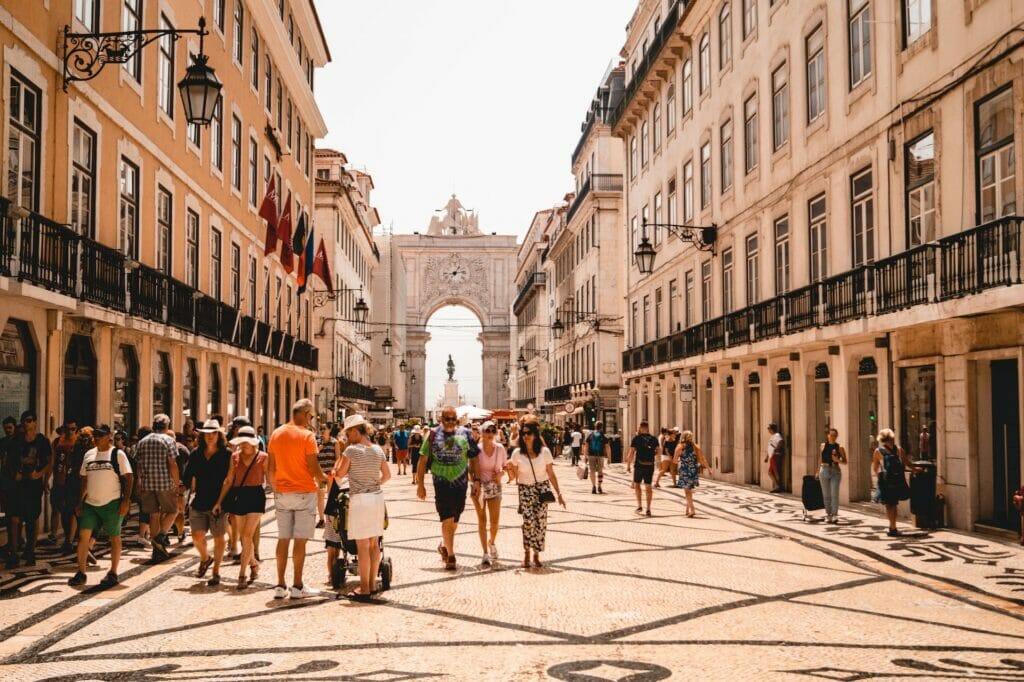Ah, you’re navigating the intricate world of visas for Portugal, I see! Both the Residency Visa and the Investment Visa offer paths to living in this beautiful country, but they cater to different needs and situations. Let’s break them down in a friendly, bite-sized way.
What is the Portugal Residency Visa?
This is your go-to if you’re planning to move to Portugal for reasons like work, study, family reunification, or retirement. You don’t necessarily need to make a significant financial investment in Portugal to qualify. It’s more about your intent to live, work, or study there.
For example, if you’ve landed a job in Portugal or want to join a family member who lives there, this would be your path. The Residency Visa allows you to apply for a residence permit once you’re in Portugal, leading eventually to permanent residency and citizenship, if that’s your goal.

What is the Portugal Investment Visa?
Often referred to as the Golden Visa. This is a bit of a golden ticket for non-EU citizens who are able to make a substantial investment in Portugal. The types of investment can vary—buying real estate, transferring capital, creating jobs, or investing in research or cultural projects.
The Golden Visa fast-tracks the residency process, offering a residence permit in return for your investment. This permit is renewable every two years, and after five years, you can apply for permanent residency or citizenship. It’s a popular route for those who can afford it, as it doesn’t require you to live in Portugal full-time to maintain your residency status.

When to choose a Residency Visa over the Portuguese Golden Visa?
Choosing between a Residency Visa and an Investment Visa for Portugal boils down to your personal circumstances, goals, and financial capability. Opting for a Residency Visa is typically more appealing if you’re seeking a deeper, more integrated experience in Portugal, either through work, study, family reunification, or retirement. It’s ideal for those who wish to actively participate in Portuguese life, immerse in the culture, and are prepared for the physical presence requirements.
This path is not just about making a financial investment but about investing in a life in Portugal, offering a direct route to permanent residency and citizenship through genuine engagement with the community and culture. It’s suited for individuals and families ready to lay down roots, embrace the Portuguese way of life, and contribute to the local economy in ways beyond the monetary.
When to choose the Portugal Golden Visa over the Residency Visa?
the Investment Visa, or Golden Visa, might be the better choice for those who prioritize flexibility and mobility. If your lifestyle or business commitments require you to travel frequently or live in multiple countries, the Golden Visa’s minimal residency requirements offer an attractive perk. It’s also appealing if you’re looking for a more straightforward, albeit financially significant, pathway to residency and eventual citizenship, without the need for full-time living in Portugal.
This option is perfect for investors who see the value in Portugal’s real estate or other investment opportunities and are looking for a return on investment along with the added benefits of residency. Ultimately, the decision hinges on whether you’re looking for a place to call home and fully integrate into, or if you’re seeking the benefits of residency with the flexibility to live globally.
Residency in Portugal for US Citizens
US citizens have several pathways to obtain residency in Portugal, each tailored to different circumstances and goals. Here’s an overview of the most common options:
Portugal D7 Visa
Ideal for retirees or individuals with stable passive income, the D7 Visa requires applicants to demonstrate sufficient funds to support themselves in Portugal. This visa grants temporary residency, which can be renewed and may lead to permanent residency after five years.
Digital Nomad Visa
Launched in October 2022, the D8 Visa visa caters to remote workers employed by non-Portuguese companies. Applicants must demonstrate a monthly income at least four times the Portuguese minimum wage. The visa offers both temporary stay and residency options.
D2 Visa Portugal
For entrepreneurs aiming to establish a business in Portugal, the D2 Visa necessitates presenting a viable business plan and evidence of sufficient capital to invest. Successful applicants receive a temporary residence permit, renewable and potentially leading to permanent residency after five years.
Portugal Golden Visa
Although direct real estate investments no longer qualify, the Golden Visa program still offers residency to individuals who make significant investments in Portugal. Eligible investments include:
Investment Funds: A minimum of €500,000 in qualified Portuguese investment or venture capital funds.
Job Creation: Establishing a business that creates at least 10 full-time jobs.
Scientific or Technological Research: A capital transfer of €500,000 or more into research institutions.
Cultural or Heritage Preservation: A minimum contribution of €250,000 towards preserving Portugal’s cultural heritage.
Portugal Residency Requirements
Here’s a concise overview of the general requirements for obtaining residency in Portugal:
Valid Passport & Clean Record: You need a valid passport and should have a clean criminal record from your country of origin.
Proof of Financial Means: Whether you’re applying for a D7 visa (for retirees or those with passive income) or another type, you’ll need to demonstrate sufficient funds or steady income to support yourself without relying on local social services.
Health Insurance: Applicants are usually required to have health insurance covering your stay in Portugal.
Accommodation: You must provide evidence of accommodation—this could be a rental agreement or property ownership.
Application Forms & Fees: Complete the necessary application forms and pay the applicable fees. Specific documents may vary based on the type of residency (e.g., work visa, entrepreneur visa, digital nomad visa).
Additional Specific Requirements:
- For the D7 Visa, you must show proof of passive income or savings.
- For the D2 Visa (for entrepreneurs), you need a solid business plan and evidence of investment.
- For the Golden Visa, significant financial investment in approved sectors is required.
After your initial temporary residency permit— valid for two year—you can renew it for additional three years. After five years of continuous legal residency, you might be eligible for permanent residency or citizenship, provided you meet integration and language requirements.
Each visa pathway has its own nuances, so consulting with an immigration expert can help tailor the process to your personal situation.

Why to work with us?
Local Expertise
Our deep understanding of Portugal sets us apart. We focus exclusively on this vibrant country to offer in-depth and practical advice. By concentrating our expertise here, we ensure you receive the most detailed and relevant guidance.
Holistic Approach
Your journey, streamlined through one point of contact. We offer an all-encompassing service, guiding you from choosing the right visa to finding your perfect home and easing your transition.
Transparent Service
Our advice is tailored to your best interests, drawing on years of experience to save you both time and money. Our fees are straightforward and competitive, without any hidden costs or upselling.
Simple Process
Our innovative use of technology simplifies your involvement in the bureaucratic process. We understand the customer experience firsthand and are dedicated to making your journey as smooth as possible.
Frequently Asked Questions About Residency or Investor Visa
What is the main difference between the D7 Visa and the Golden Visa?
The D7 Visa is income-based and designed for those with stable passive income, while the Golden Visa requires a qualifying investment in Portugal.
How much do I need to invest for a Golden Visa?
Investment options start at €250,000 for cultural projects, or €500,000 in investment funds, among others.
What are the residency requirements for both Residency and Investor Visa?
The D7 Visa requires living in Portugal for at least 16 months during the first two years. The Golden Visa requires an average of seven days per year in Portugal.
Which residency visa is more suitable for retirees?
The D7 Visa is ideal for retirees with a stable pension or passive income who want to live full-time in Portugal.
Can both Residency and Investor visas lead to citizenship?
Yes, both visas provide a pathway to permanent residency or citizenship after five years, subject to fulfilling certain requirements.
What is the processing time for Residency and Investor Visas?
The residency visas typically has shorter processing times. The Golden Visa may face delays due to high demand and administrative backlogs.
Do I need to learn Portuguese for either visa?
For citizenship, both visa holders must pass a basic Portuguese language test, though it’s not required for the initial visa.
Can I include my family in both visa applications?
Yes, both visas allow for family reunification, including spouses and dependent children.
Which type of visa offers more flexibility for frequent travelers?
The Golden Visa is better for frequent travelers as it has minimal residency requirements, making it suitable for those who don’t plan to live in Portugal full-time.




